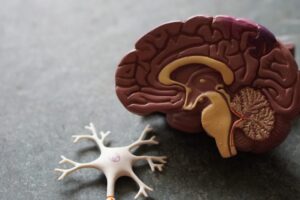Not all dairy product are the same. Read on to learn more about the health benefits of A2 dairy, and why A1 dairy should be avoided.

The Difference Between A1 and A2 Dairy
β- Casein is one of the major proteins in milk of cows, buffaloes and other mammals. Research studies have shown that there are different variants of β -casein in milk evolved over hundreds of years due to mutation and selective breeding for high milk and protein yields. There are 15 known variants of β -casein out of which A1 and A2 are major. β-casein-A1 (alleged bad casein) differs from A2-casein only by one amino acid at position 67 (proline in A2 and histidine in A1).
Camels, goats, sheep, humans, and Jersey and Guernsey cows produce A2 casein.
Holstein and Fresian cows are A1 casein producers.
Some of the healthiest cultures in the world consume A2 dairy, and don’t even have access to A1.
In Ayurvedic medicine, dairy products are regarded as excellent foods, particularly for those on spiritual paths. Milk is considered pure or “sattvic” in nature. It is born of love and increases our natural intelligence and sensitivity. Cows in India are A2 cows.
In Blue Zones, or areas of the world with the longest lived people, dairy products, especially sheep’s and goat’s milk are used. Goats and sheep’s milk is A2.
To the Traditional Swiss living in the isolated Loetschental valley early in the last century, raw dairy products were sacred foods. They were extremely healthy. Weston A. Price, an American dentist visiting this population noted, “both adults and children had broad, well-developed faces and palates, good dispositions and sturdy bodies.” Their dairy products were from A2 cows.

The mongols, a very healthy culture, consume milk from sheeps, goats, and A2 cows.
A1 milk has been linked to:
- Neurological impairment
- Type 1 Diabetes
- Impaired immune response
- Autoimmune disease
- Heart disease
- Irritable bowel syndrome
- Crohn’s
- Leaky gut syndrome
- Colitis
- Acne and other skin issues like eczema
- Autoimmune diseases
In one study, consumption of A1 relative to A2 dairy delayed intestinal transit in rodents via an opioid-mediated mechanism. Rodent models also link consumption of A1 to the initiation of inflammatory response markers plus enhanced Toll-like receptor expression relative to both A2 and non-milk controls.
In the same study, researchers noted,
There is evidence from a limited number of studies that A1 consumption is also associated with delayed intestinal transit and looser stool consistency. In addition, digestive discomfort is correlated with inflammatory markers in humans for A1 but not A2.
In this study, consumption of milk containing A1 β-casein was associated with increased gastrointestinal inflammation, worsening of Parkinson’s symptoms, delayed transit, and decreased cognitive processing speed and accuracy.
Because elimination of A1 β-casein attenuated these effects, some symptoms of lactose intolerance may stem from inflammation it triggers, and can be avoided by consuming milk containing only the A2 type of beta casein.
Milk that contains mostly or exclusively A2 casein produces none of these inflammatory effects.
In this study, A2 milk was proven to enhance physical performance in athletes. The researchers noted that it “may offer an alternative to athletes intolerant to the A1 protein.”
In another study, milk containing only A2 β-casein and not A1 β-casein has the potential to promote the production of the antioxidant glutathione in humans.
Glutathione’s health benefits are incredible.
It fights oxidative stress, controls inflammation, prevents stress and depression, limits neurological degeneration, helps with infections, heals the gut, treats autism, detoxes carcinogens, treats psychiatric disorders, helps ADHD, prevents heart disease, prevents kidney disease, protects the liver, prevents addiction, reduces the consequences of drugs and alcohol, controls cell death, helps with respiratory issues, treats sleep apnea, treats acne, helps with rheumatoid arthritis, prevents glaucoma and cataracts, encourages a healthy pregnancy, and helps treat AIDS and cystic fibrosis.
According to this study, populations which consume milk containing high levels A2 dairy have a lower incidence of cardiovascular disease and type 1 diabetes. “Furthermore, consumption of A2 dairy may be associated with less severe symptoms of autism and schizophrenia.”
In Conclusion
A1 and A2 dairy are vastly different substances. Consume A2 dairy and avoid A1 dairy.



